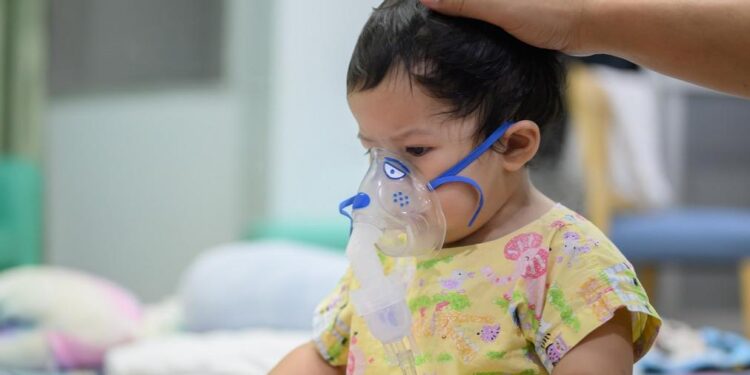Respiratory Syncytial Virus (RSV) is a common respiratory virus that typically causes mild, cold-like symptoms. However, this season, an unusually high surge in RSV cases is straining pediatric hospitals, particularly impacting young children. As parents scramble for information, understanding the symptoms, prevention strategies, and available resources is crucial.
Table of Contents
What is RSV?
RSV is a common respiratory virus that typically infects most children by the age of two. While most cases resemble a common cold, RSV can be more severe for infants and young children, leading to bronchiolitis (inflammation of the small airways in the lungs) or pneumonia.
Why the Surge?
Several factors are contributing to the current RSV surge:
- Relaxed COVID-19 precautions: Decreased mask-wearing and social distancing measures may have facilitated the spread of RSV.
- Lack of prior exposure: Due to COVID-19 restrictions, young children may not have built up immunity to RSV through typical seasonal exposure.
- Increased testing: Improved awareness and wider availability of RSV testing might be capturing more cases.
Symptoms to Watch For:
Symptoms of RSV in young children can mimic a common cold but may worsen quickly. Be alert for:
- Runny or stuffy nose
- Coughing
- Fever
- Wheezing
- Difficulty breathing
- Decreased appetite and irritability
Prevention Tips:
While there is no specific vaccine for RSV, preventive measures can help:
- Frequent handwashing: Wash hands thoroughly with soap and water for at least 20 seconds, especially after contact with sick individuals or surfaces.
- Avoid close contact with sick people: Encourage children to avoid close contact with anyone exhibiting cold or flu-like symptoms.
- Practice good cough etiquette: Cover coughs and sneezes with a tissue or elbow to prevent the spread of germs.
- Clean and disinfect surfaces: Regularly disinfect commonly touched surfaces like toys, doorknobs, and countertops.
Seeking Medical Attention:
If you suspect your child has RSV and symptoms worsen, seek immediate medical attention. Early diagnosis and intervention can help prevent complications.
Resources for Parents:
- Centers for Disease Control and Prevention (CDC): https://www.cdc.gov/rsv/index.html
- American Academy of Pediatrics (AAP): https://www.youtube.com/watch?v=CjQEhWzGLfE
- Children’s Hospital of Philadelphia: https://www.chop.edu/conditions-diseases/respiratory-syncytial-virus-rsv
Remember:
While the RSV surge is concerning, staying informed, practicing preventive measures, and seeking timely medical attention can help protect your child. By working together, we can navigate this challenging time and ensure the well-being of our youngest ones.
Additional Resources:
- RSVnet: https://resvinet.org/
- National Institutes of Health (NIH): https://www.niaid.nih.gov/diseases-conditions/respiratory-syncytial-virus-rsv
- National Respiratory Syncytial Virus (RSV) Coalition: https://www.infanthealth.org/rsv
It’s important to stay informed and consult with healthcare professionals for specific guidance regarding your child’s health. Remember, early intervention can significantly improve outcomes and ease the strain on our healthcare system. Let’s work together to protect our children and navigate this challenging season safely and effectively.


 Home
Home









